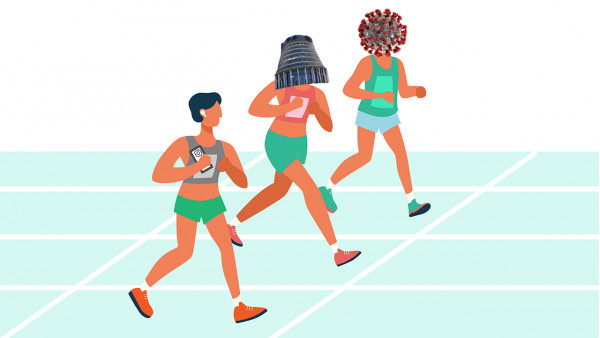Will New Zealand transform in time?
29 January 2021

This year it will be a race between the Government, Covid and the next generation of 15- to 30-year-olds. The race will be to see who can impose the most change on our country.
The Government will implement changes that will touch every New Zealander and every New Zealand business in the coming months. The question is whether Covid will once again, as it did in 2020, overtake the Government’s changes. But the real question is, will the next two generations, the millennials and zoomers, eclipse both the Government and Covid in the race for imposing change? The next generations may not have an immediate influence, but they will have the longest-lasting one.
The absolute and seemingly unresolvable crises facing New Zealand and the world are: climate change, the destruction of our environment and finding somewhere affordable to live. Fast on the heels of these issues are the changes that will rapidly affect how we work. Automation is taking away many occupations. The impact of this will first be felt by the 15- to 30-year-olds who do not have jobs.
There will always be jobs on the land, maintaining robots, creating automation, in strategy and management. But there will be a large portion of the world who, although they are educated and capable, will not be able to find work in the not-too-distant future.
This situation – under today’s policies – will not transform our future and make attractive it at all attractive for 15- to 30-year-olds. A new transformational approach is needed, where we completely re-engineer how our society works. This is not about raising the minimum wage or increasing sick leave. It is not about trying to implement an archaic immigration system that struggles to deal with today’s issues. What has to happen is transformational change.
Covid is delivering change, but that is not transformational. The Government’s focus is on Covid survival and implementing its election promises. So, where are we going to get the much-needed transformational change? This is frustrating the 15- to 30-year-olds. And that is why we see them protesting that not enough is being done about climate change and protecting our environment. We need to dig ourselves out of our current paradigm, think creatively about the future, and harness the power of the 15- to 30-year-olds.
It is time to put away the sluggish and reactionary programmes of today, and take a new and innovative look at how we are going re-engineer the future before it is too late. We need to take a holistic approach, encompassing our whole life and environmental cycles. As a country, we need to plan how to transform our future country. We need to make our people's health and wellbeing and the protection of our environment our paramount goals.
We need to analyse what contributes to health and wellbeing, and how we can supply that in the future. It starts with simple building blocks: people need water and healthy food, shelter and purpose. Where, for example, is New Zealand’s food supply policy? Have we thought about how we are going to feed our own country, let alone export food around the world? Are we making sure that what is needed to grow healthy food will be available: suitable soil, year-round water, labour and adapted plant varieties, to name just a few of the key ingredients?
Growing conditions and the places to grow our produce need to be planned and not just left to chance. How this worked in the past will not work in the future. The question needing to be answered is: do we want to feed our people healthy food? The answer to that question is to enable those entire growing systems. But this is only one example of the change that will be required across all that we do in New Zealand, to be fit for the future.
As a country, we are going to have to make trade-offs on what we do today to ensure we have a future. This is what the 15- to 30-year-olds are demanding.
Can we deliver? Are we doing enough to effect this change?
Mike Chapman
Chief Executive
